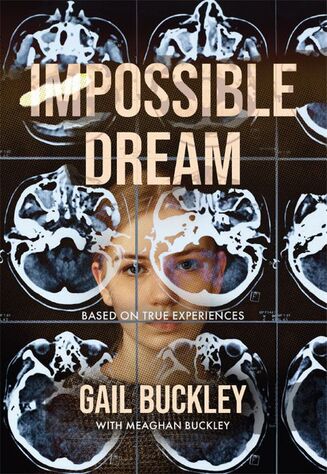|
Score: 91/100
Impossible Dream is beautiful! It has so many positive implications for the future of humanity, particularly for the millions struggling with physical and mental disabilities. This has broader implications than just dealing with autism. Now, with that said, there was a time about a quarter into the novel when we went, “Oh no... not another one of these.” It looked like it was going to be another meandering stream-of-consciousness narrative from the perspective of the protagonist like we'd seen in books in the past. That's not to say that stream-of-consciousness narratives can't be effective or even beautiful. For example, Jonathan Safran Foer's Extremely Loud Incredibly Close is a phenomenal novel that not only features stream-of-consciousness but also a character with autism--similar to Impossible Dream. However, stream-of-consciousness narratives can come across as very gimmicky, clumsy, and tedious because the narrator often won't filter or distinguish between what's important to share (for the sake of character development and the plot) or what's superfluous. Thankfully, this book avoids that problem while teetering on the edge of it in the first few chapters. Anna opens up by seeming to observe and discuss everything and everyone in her class. She describes these things methodically and in chronological order. In a sense, we get to be in the mind of Anna—a girl with autism—and to see the world as she sees it. We gather that she's very observant and opinionated. What stands out in the first couple chapters is just how matter-of-fact her narration is. It's simple, sharp, and dry while avoiding being dull or boring. Once the plot begins and we face the major moment of crisis in the story, the book really picks up and becomes a very worthwhile read. This is going to sound a like a strange comparison, but it almost has a similar tone and feel to Hayao Miyazaki's Totoro--there's some slowness and strangeness in the beginning, things are happening that seem mundane or even uninteresting, there's a crisis, and then we have very strong, human moments as a result of that crisis. Anna serves as autistic yet strong-minded female protagonist who steps up to give others struggling with autism and other disabilities a chance to communicate, function, and even thrive in society. It seems very apparent that Anna is a surrogate for Meagan Buckley, the author's daughter who has lived with autism, while sharing much of the knowledge and many of the ideals of both the author and her daughter. There are times when Anna goes from sounding like a 14-year-old girl to sounding like a 40-year-old woman, having an almost encyclopedic understanding and knowledge of psychiatry and neurological function. Sometimes, even the doctors and Anna's highly-educated brother are blown away by her knowledge on these subjects. While this can seem hard to swallow, it isn't entirely unprecedented. Some with autism are known to have extraordinary recollections of specific topics that they become fixated with. The main character in Extremely Loud Incredibly Close was extraordinarily intelligent and knowledgeable about astrophysics, all while living within the high-functioning end of the autism spectrum. Anna goes from being a passive yet observant narrator to becoming a very active agent in pursuing a solution to the problems she sees. From this, we gather that she is both thoughtful, brave, and caring—the traits we look for in a hero. However, she's also vulnerable. We know she's fighting uphill most of the time. We feel for her. In one of the most powerful lines, she calls her tablet her “lifeline to the world” because it gives her the ability to communicate via typing her thoughts into a kind of text-to-speech mechanism. Many consider this her “gift” since she is an incredible communicator in spite of her circumstances. The technology that she is helping to create in the book via what can probably be described as neural learning holds a tremendous amount of potential for humanity. Could you imagine that such a technology would give people with disabilities a second chance at life--a second chance at doing the things they love to do such as playing sports or drawing? Could you imagine what this could mean to those who have lost limbs in accidents or in war? The applications are numerous! Perhaps the greatest takeaway from this book is a feeling of appreciation. We have a greater appreciation for those will autism, not just because most of us don't have to endure living with autism, but because those with autism are actually gifted and capable in many unique ways. Anna and her classmates are all different from each other despite all being under the same umbrella. Daniel is a far better artist than almost everyone else because of how great he is with his hands and how tremendous his eyesight and memory are. He can seemingly draw anything just by seeing it. Anna is a problem-solver and incredibly intelligent. Again, even the doctors are impressed by her intellect. The book reminds us that being autistic doesn't mean having no intelligence. In fact, autistic people can be very intelligent like Anna is but struggle with things such as performing physical tasks or communicating. Anna seeks to make these things that were previously impossible possible. We very much loved and appreciated Impossible Dream and recommend you check it out on Amazon: https://amzn.to/3GduhVa
0 Comments
Leave a Reply. |
Archives
July 2024
Categories |

 RSS Feed
RSS Feed